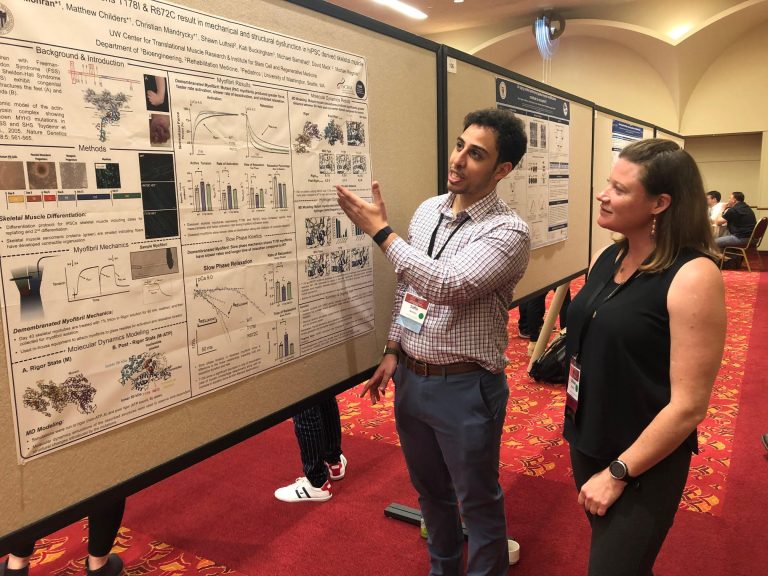CTMR Pilot Grant Recipient Dr. Farid Moussavi-Harami awarded NIH R01 Grant

A huge congratulations to 2020 CTMR pilot grant recipient Farid Moussavi-Harami, MD, who recently received a Notice of Award for his first NIH R01 grant!
An Assistant Professor with the UW Medicine’s Division of Cardiology, Dr. Moussavi Harami’s CTMR pilot grant study focused on the genetic mutations, such as dilated cardiomyopathy, impacted contractile force in the hearts of mice. The funding from the CTMR, along with a Collaborative Science Award from the American Association, allowed Dr. Moussavi-Harami and his research partners to receive a five-year, $3.3 million R01 grant from the NIH to pursue personalized treatments for genetic heart diseases.
The CTMR not only provided support for the crucial preliminary data necessary for the award, but also has encouraged productive collaborations among investigators. Also on the new grant’s research team are CTMR Co-Director and Quantitative Analysis Core Lead Tom Daniel, PhD; Co-Investigator of the Mechanics and Devices Core Nate Sniaedcki, MD; and recent pilot grant recipient Jen Davis, PhD.
The R01 Grant will allow Moussavi-Harami and collaborators to investigate mechanisms that underpin hypertrophic cardiomyopathy (HCM) and dilated cardiomyopathy (DCM), two genetic conditions that can appear at any stage of life and fatally disrupt the heart’s ability to pump blood. Previous studies of the genetics underlying these heart conditions have primarily focused on informative, but very incremental biophysical and biochemical assay techniques. Utilizing the technological resources of the CTMR Quantitative and Mechanical Cores, Moussavi-Harami hopes to overcome limitations in the field by using computationally generate biophysical simulations of cardiac muscle twitches for various disease related genetic variants of troponin, the protein that calcium binds to initiate contraction. The results produced by simulations will then be validated in stem cell and mouse models to predict the best treatment to restore normal cardiac force.
Ultimately, Moussavi-Harami described, “Our goal is to harness the technology we have available to today to look for patterns in the mutations that cause cardiomyopathies and then to use that information to develop personalized treatments that match an individual patient’s genetic profile.” While technology is a major driver of the research, Moussavi-Harami says the grant, itself would not have been possible without the collaborations and mentorship fostered by the CTMR.
Read more about how recent NIH Grants will help CTMR researchers translate discoveries into strategies to treat heart disease in recent UW Institute for Stem Cell and Regenerative Medicine (ISCRM) article: https://iscrm.uw.edu/stories/momentum-in-iscrm-muscle-research/.


